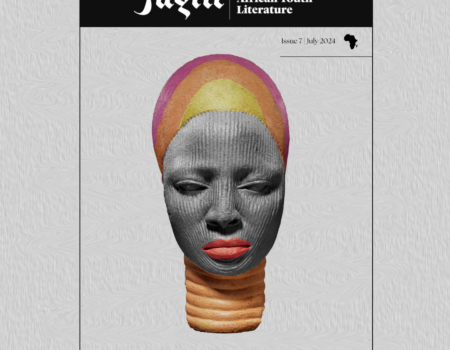In literature, certain stories stay with you, as powerful and unforgettable as a first heartbreak. For me, it was my introduction to Mariama Ba’s So Long A Letter. Set in an African Islam society, the novella laid bare the struggles of women caught in the vise of cultural oppression. At my first read, it was a recommendation for school, but I found myself reading and re-reading it, digesting the weight of Ba’s words slowly, absorbing the stories with a feeling that was part outrage, part awe. Her novella mirrored the experiences of women in muslim societies, and it set me on a quest to find others like it. I picked up Nawal El Saadawi’s Woman at Point Zero next. Concurrently, I went searching for similar literature with contemporary voices. To my disappointment, there were few.
During a 2023 interview with Shallow Tales Magazine, Nigerian author Muti’ah Badruddeen—a standout voice in Black African Muslim women’s literature—spoke candidly about the limitations of her literary niche. Badruddeen, who won the “Best of a Shallow Year” award for her creative nonfiction piece “Time is Not Your Healer”, described the sparse representation she has encountered. “I write to tell our stories, those of women like me, people like me,” she explained. “It is not easy to be a Black African visibly Muslim woman who loves reading or literature. We do not see ourselves in the world we love. When we do, we see a version of ourselves we do not recognize. The stereotypes are not like us.”
Her fiction reflects this personal mission. Her novel Rekiya & Z, a contemporary women’s fiction narrative, explores the lives of two friends, Rekiya and Z, who reconnect amid mutual loss. Themes like time’s frailty, trauma, and the varied realities of Muslim womanhood in Nigeria are explored. This novel put Badruddeen on the literary map, earning her recognition as a finalist in TLC UK’s Pen Factor competition in 2022 and winning the SprinNG Women Author Prize in Nigeria.
But this writer’s nonfiction is perhaps, to me, where her voice shines most authentically. The reason is not far-fetched. Nonfiction is unembellished and visceral; it is storytelling stripped of metaphor. Pieces like “Time is Not Your Healer” and “Womb and Period Hu(r)ts”, the latter published in Isele Magazine, have a rawness that readers immediately encounter.
In “Time is Not Your Healer”, the author shares the intense experience of losing her father. She paints a vivid picture of a father-daughter relationship as she processes her grief and transitions from being a daughter to a mother. Badrudeen offers an intimate portrayal of her grief following her father’s death, emphasizing that grief is not something time erases. This notion contrasts sharply with the common belief that time heals all wounds, instead presenting grief as a constant companion that shapes her life.
This theme of familial loss is further explored in “Ghost of Harmattan Past, or the Privilege of Home”, another of her essays, which looks back on her childhood in Nigeria, complete with its climatic peculiarities and the lasting comfort of “home.” She writes about her father’s death, and how it has shaken the roots of her family. As Badrudeen reimagines her life post-loss, she captures the sense of displacement that accompanies the shattering of familiar foundations. The interplay of memory and mourning in this essay deepens the exploration of how familial relationships can be forever altered by death.
The author’s exploration of femininity is particularly striking in “Womb and Period Hu(r)ts”, an essay that is at once a meditation on womanhood and a defiance of societal expectations. Here, Badruddeen navigates the complexities of medical, cultural, and emotional realities. When she considers a hysterectomy, the idea stirs not only a personal conflict but also worries about how her society might perceive her.
Across these essays, a common thread emerges: Badruddeen’s exploration of grief is intertwined with her reflections on femininity. Each essay invites readers to consider how loss, whether through death or the redefinition of one’s body and identity, necessitates a journey toward self-acceptance and autonomy.
What sets this author apart is her ability to evoke empathy, the kind that makes you feel with every line. When I read her work, I feel myself slipping into her world, breathing her sighs, sharing in her joy, her pain, her anger. The tenderness in her writing is striking; every word pulses with her experience, her resilience. This, to me, is the mark of a great writer—a voice that can cross boundaries, binding readers to her story, whether they’ve lived it or not.
Moreover, Badruddeen’s commitment to portraying contemporary Black African Muslim women, without the veneer of stereotype, is a courageous choice in today’s literary landscape, where niche writing like hers is still underrepresented. Her work is anything but predictable; it’s nuanced, authentic, and offers a lens into what it means to be a Muslim woman today, without the weight of caricature.
Evidence Egwuono Adjarho
Evidence Egwuono Adjarho is passionate about African literature and dedicates her time to amplifying it through book reviews and video content. She won the Atipo Prize for Book Review 2023 and the Afrocritik Inaugural Prize for Literary Criticism 2024. She was the second runner-up in the After The End Book Review Competition 2024. Her work has appeared in Afrocritik, JAY Lit, Afapinen, Kalahari Review, Bella Naija and elsewhere. Connect with her on Instagram, X, Facebook, and LinkedIn: @evidence_egwuono.


![You are currently viewing [Featured Post] Muti’ah Badruddeen: Writing to Amplify Black Muslim Womanhood](https://jaylit.com/wp-content/uploads/2025/07/Mutiah-Badruddeen-e1754070347570.png)
![[Featured Post] African Cultural Heritage Speedily Going into Extinction](https://jaylit.com/wp-content/uploads/2024/09/JayLit-Originals-450x350.png)

